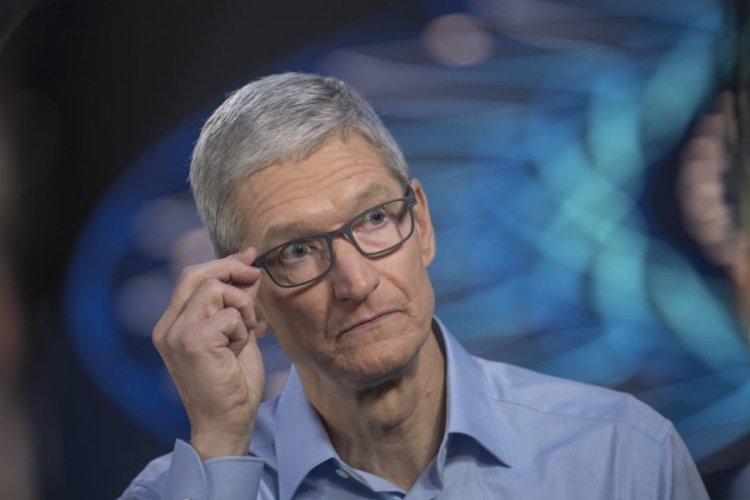Apple CEO Tim Cook has been a staunch advocate for civil rights, and even keeps a picture of Martin Luther King Jr. in his office. So it’s probably not surprising that Cook is a little defensive about a recent decision by Apple to go along with a repressive computer policy in China.
In recent days, Apple pulled a number of apps from its app store in China that could be used to circumvent China’s Internet censorship laws. Known as virtual private network, or VPN, apps, the programs let iPhone and iPad users mask their origins from the “Great Firewall of China” and thereby access sites banned by the government and better shield their communications from surveillance.
On Tuesday, Cook said Apple had no choice but to remove the VPN apps.
“We would obviously rather not remove the apps, but like we do in other countries, we follow the law wherever we do business,” Cook said on a call with analysts to discuss quarterly financial results. “We strongly believe in participating in markets and bringing benefits to customers is the best interest of the folks there and in other countries as well.”
June 5th: The AI Audit in NYC
Join us next week in NYC to engage with top executive leaders, delving into strategies for auditing AI models to ensure fairness, optimal performance, and ethical compliance across diverse organizations. Secure your attendance for this exclusive invite-only event.
In a column published earlier on Tuesday, New York Times tech columnist Farhad Manjoo called out Apple for caving to the Chinese censorship demands. Conceding that Apple was probably forced to remove the VPN apps, Manjoo concluded that “Apple’s quiet capitulation to tightening censorship in one of its largest markets is still a dangerous precedent.”
Cook also went on to explain why he thought the situation in China was quite different from the standoff between Apple and the FBI last year over decrypting information on an iPhone used by a terrorist in San Bernardino.
“Some folks have tried to link it to the U.S. situation last year–they’re very different,” Cook said on the analyst call. “In the case of the U.S., the law in the U.S. supported us. It was very clear. In the case of China, the law is very clear there.”
But Apple did state its point of view in China “in the appropriate way,” Cook added. That has not, at least so far, included any public criticism of the Chinese demand, or even more drastically, pulling out the country in protest.
This story originally appeared on Fortune.com. Copyright 2017

